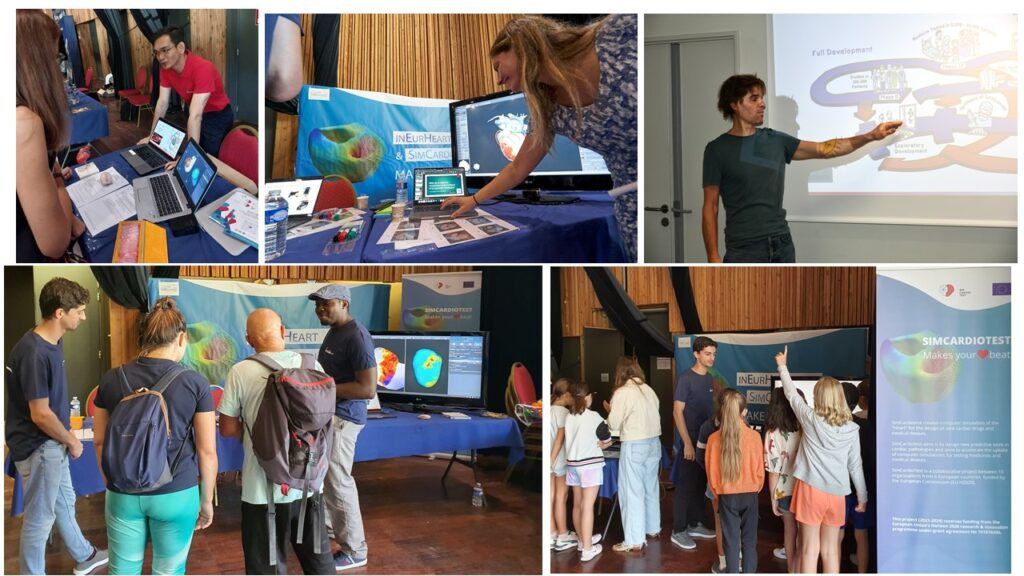From October 6 to 8, French scientific teams organized the traditional Fête de la science. The EU funded project SimCardiotest and inEurHeart were presented to schoolchildren and the general public. Over 12,000 visitors attended the Fête de la Science in Villeneuve-Loubet, near Nice.
Buntheng Ly, IHU-Liryc–Inria, presented a short introduction to cardiac physiology and cardiac imaging. The goal is to provide the general public some preamble notions of the mechanical and electrical functionalities of heart, and of how these phenomena can be captured/monitored through medical imaging techniques. Demo here (FR).
He also presented his work on automatic Predictionof Cardiac Arrhythmia. A presentation to show a concrete example of the application of artificial intelligence in cardiac imaging in the clinical diagnosis, in thecontext of ventricular arrhythmia.Demo here (FR).
Evariste Njomgue Fosto, Inria, presented a demo on automatic characterization of cardiac arrhythmia risk from medical imaging
Anaëlle Zanella, Inria, organized a game on the automatic annotation of heart structures on a scanner. Anaëlle is specifically involved in the EITHealth project inEurHeart. The aim of her work is to create a virtual representation of the patient’s heart: its digital twin. This digital heart can be analyzed prior to an ablation operation to better target the critical area at the origin of the arrhythmia (based on the identification of areas of calcification, wall thinning, presence of fat, myocardial infarction, etc.). The model can also be used for electrical simulations. Demo Here (FR)
Rafael Silva, Inria, performed real-time cardiac monitoring. He presented how cardiac monitoring can be extended beyond hospital facilities and integrated into people’s daily routines. He highlighted the important role that Artificial Intelligence can play in automating the early detection of heart disease and he also presented the applications of heart monitoring for sports and wellness assessments. In addition, he invited people to visualize their own electrocardiographic signal in real time using a portable wireless device while clarifying the principles of its acquisition. Demo here (FR).
The same days, Prof. Yves Coudière, Univ. Bordeaux-Inria, presented in-silico clinical trials to a group of high-school students in Bordeaux.




